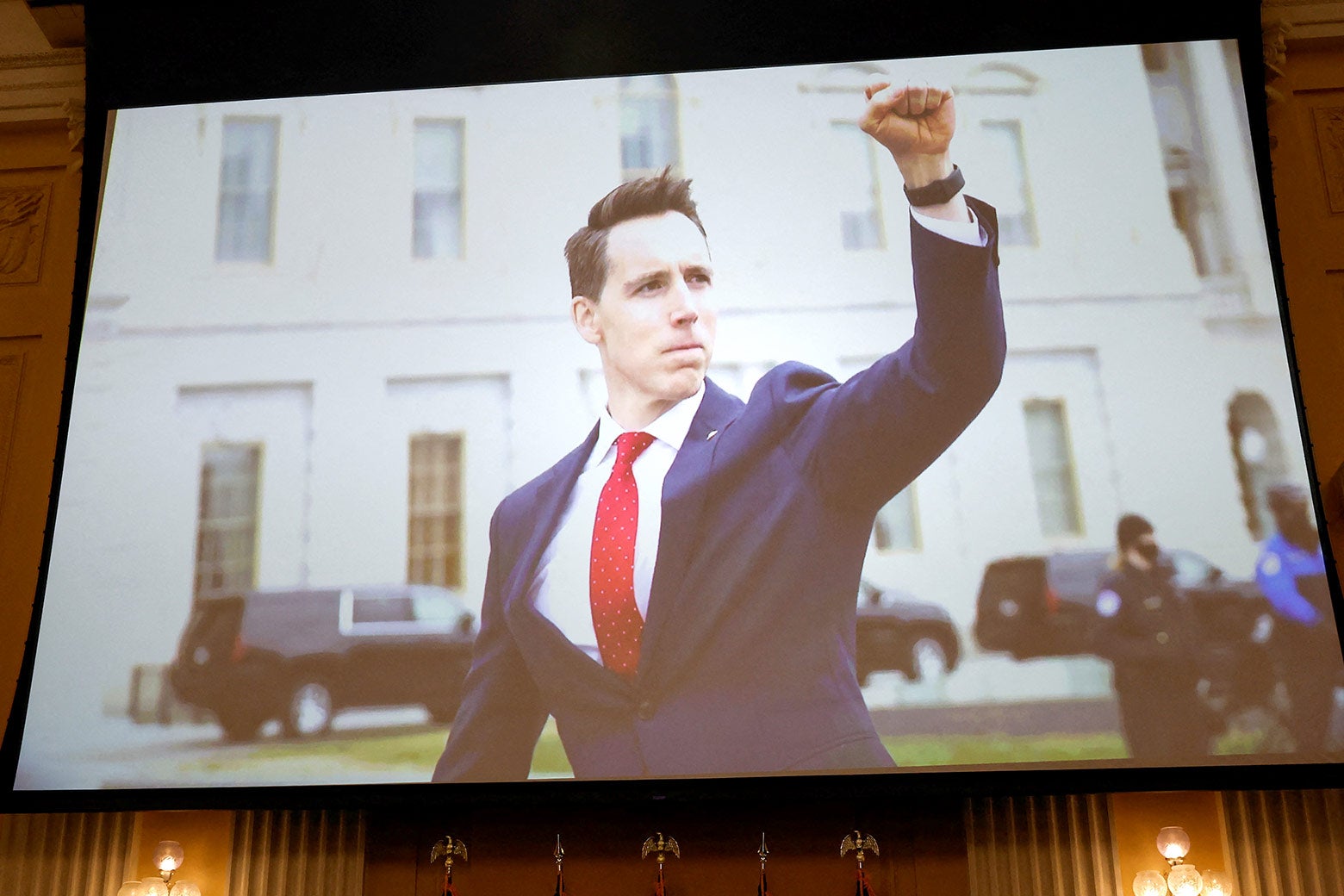Politics
Hawley’s Dilemma and the January 6, 2025 Event

Trump vs. Harris 2024: The Josh Hawley Dilemma and January 6, 2025.
As Election Day approaches, there’s an impending sense of contestation surrounding the election. The critical question remains: will our system endure these challenges? Legal scholar Matthew Seligman and Professor Lawrence Lessig, in their recent work “How to Steal a Presidential Election,” offer valuable insights centering on potential implications and what might come after the election chaos.
In a recent conversation on the Amicus podcast, Dahlia Lithwick posed a pressing question to Seligman: Which scenarios about the upcoming election keep him awake at night? His response crystallizes some significant concerns.
Seligman identifies two scenarios that particularly unsettle him. The first revolves around the Electoral Count Reform Act, a legislation passed in late 2022 that significantly strengthens electoral procedures. Prior to this, the Electoral Count Act of 1887 had been riddled with ambiguities and vulnerabilities, allowing for dangerous manipulation during the electoral counting process. The new law aims to minimize governor control over election results and tightens the procedures for Congress in accepting electoral votes. However, amidst these improvements lies a potentially catastrophic flaw.
The intended enhancement, which is to eliminate the possibility of alternative electors, introduces a new vulnerability. Under the new law, a governor’s certification of electors must come with judicial review, which sounds ideal in theory. Still, it introduces rigid deadlines. For instance, if a governor fails to certify electors by mid-December, there lies a risk of disallowing any electors from that state, regardless of legitimate election results or subsequent recounts. This could lead to a scenario where electoral votes are irretrievably lost due to delays, reminiscent of the complications seen in Bush v. Gore.
The second scenario is even more troubling. What if Congress itself disregards the Electoral Count Reform Act? In this unprecedented situation, Congress—particularly a Republican-controlled House—could refuse to adhere to the Act’s stipulations, potentially jeopardizing the integrity of the electoral process. If Congress were to openly contravene the law and declare certain electoral votes invalid based on unfounded claims, such as alleged widespread voter fraud or conspiracies surrounding election integrity, we might face a constitutional crisis of unprecedented proportions.
This brings us to the troubling figure of Josh Hawley, whose actions on January 6, 2021, illustrate a disturbing willingness to prioritize political ambition over the law. Seligman and Lessig have been particularly harsh in their assessment of Hawley, emphasizing that he knows better. As a former law professor, he possesses an understanding of the law that should dissuade such reckless behavior.
Reflecting on Hawley’s conduct during the Joint Session of Congress on that fateful day, it becomes clear that his actions were not merely a lapse of judgment but a dangerous deviation from constitutional norms. As articulated by Mitch McConnell, Congress is not equipped to act as a National Board of Elections; election results are to be managed by the states and adjudicated through the courts.
Fast forward to now, and J.D. Vance has publicly suggested that he would not have taken the same constitutional path as Mike Pence did on January 6, leaving us all questioning his intended course of action. His assertion that there should have been a political discourse surrounding the election results is fundamentally at odds with democratic principles, as the legitimacy of electoral outcomes is not a matter for debate but a matter of established law.
As we brace ourselves for the 2024 election, the shadows of misinformation and conspiracy theories loom large, posing grave risks to the rule of law. Even if we manage to maneuver through this electoral maze and a lawful election winner is sworn in on January 20, 2025, the underlying political currents ripe for manipulation need to be critically examined.
What we face is a movement increasingly willing to disregard the rule of law for political ends. Those in power must be cautious; the integrity of our electoral processes hinges on a robust commitment to lawful governance.
